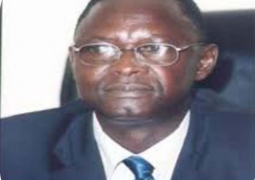Magistrate Ngube, who is the chairman of the Industrial Tribunal at Kanifing, on 28 September 2011 entered judgment against the
The defendant was ordered to pay the plaintiff D10,000 being two-month’ salary in lieu of notice.
The plaintiff, Paul Mendy, was awarded cost of D25,000 and interest of 20 percent on the entire award, from 8 April 2009 to the date of this award, and thereafter 4 percent to date of final payment.
In his judgment, the chairman of the tribunal stated that the plaintiff, Paul Mendy, caused a plaint to be sealed against the defendant.
He indicated that the plaintiff claimed damages of D100,000 for wrongful dismissal from his employment with the defendant.
He further added that loss of earnings from the date of dismissal to date of issue of the summons for the suit was also claimed by the plaintiff, and payment of gratuity and additional benefits.
He revealed that interest of 20 percent per annum, from the date of the filing of the suit to date of judgment and costs had been claimed by the plaintiff.
He said that the suit was filed on 8 April 2009.
He added that the defendant was legally represented by lawyer Riley, stating that one Samuel Sowah was the defendant’s representative.
He said the representative for the defendant attended the tribunal for the last time on 30 July 2009, adding further that a series of adjournments ensued, a large proportion of them occasioned by the absence of the defendant’s counsel.
He told the tribunal that the plaintiff testified on 7 January 2010, about nine months later.
He indicated that the plaintiff said he had worked with the Seventh Day Adventist Mission for 21 years as a pastor.
He said the plaintiff testified that in 2008 the churches in The Gambia were informed that an audit team would come from their headquarters in
The plaintiff, according to the tribunal chairman, told the tribunal that in preparation for the audit, the churches in The Gambia ordered an internal audit to which the plaintiff was appointed a committee member.
The chairman indicated further that, on 17 November 2008, the plaintiff received a phone call from the director of Seventh Day in The Gambia, Pastor Emmanuel Smith, inviting him to a meeting on 20 November 2008.
He said the plaintiff added that the meeting was also attended by Pastor Emmanuel Smith and Samuel Sowah, the treasurer.
He said that the plaintiff stated that Pastor Smith told him that the mission had taken a decision, at a meeting held on 15 November, to dismiss him from work, and that he should wait for official notification of the dismissal in writing.
The chairman said the plaintiff had testified that he was not invited to the meeting, and that Pastor Smith told him that during the meeting of 15 November, the church felt the plaintiff was not telling the truth about the sale of the church’s television, and about church funds that the accountant could not account for.
He said the plaintiff further testified that he was eventually served with a dismissal letter, which he received two months after he was verbally dismissed.
The tribunal chairman stated that neither the defendant nor his counsel appeared, despite the service of notice on both of them.
In summary, he stated that a termination will be considered unlawful where the plaintiff was not given the proper notice of paid salary in lieu of notice for the proper notice period.
He added that the plaintiff’s employment was unlawfully terminated only to the extent that the defendant did not give him proper notice.


